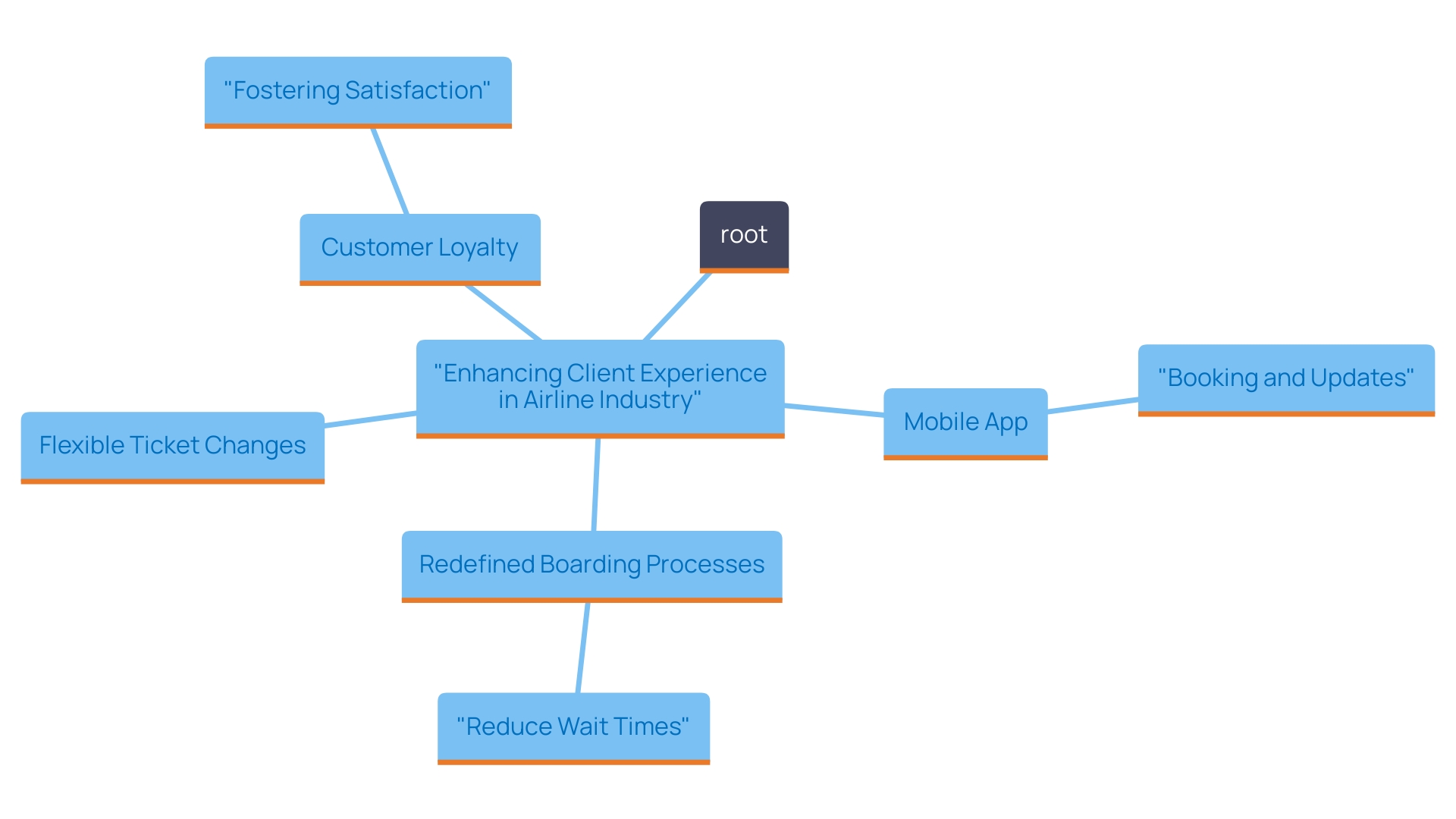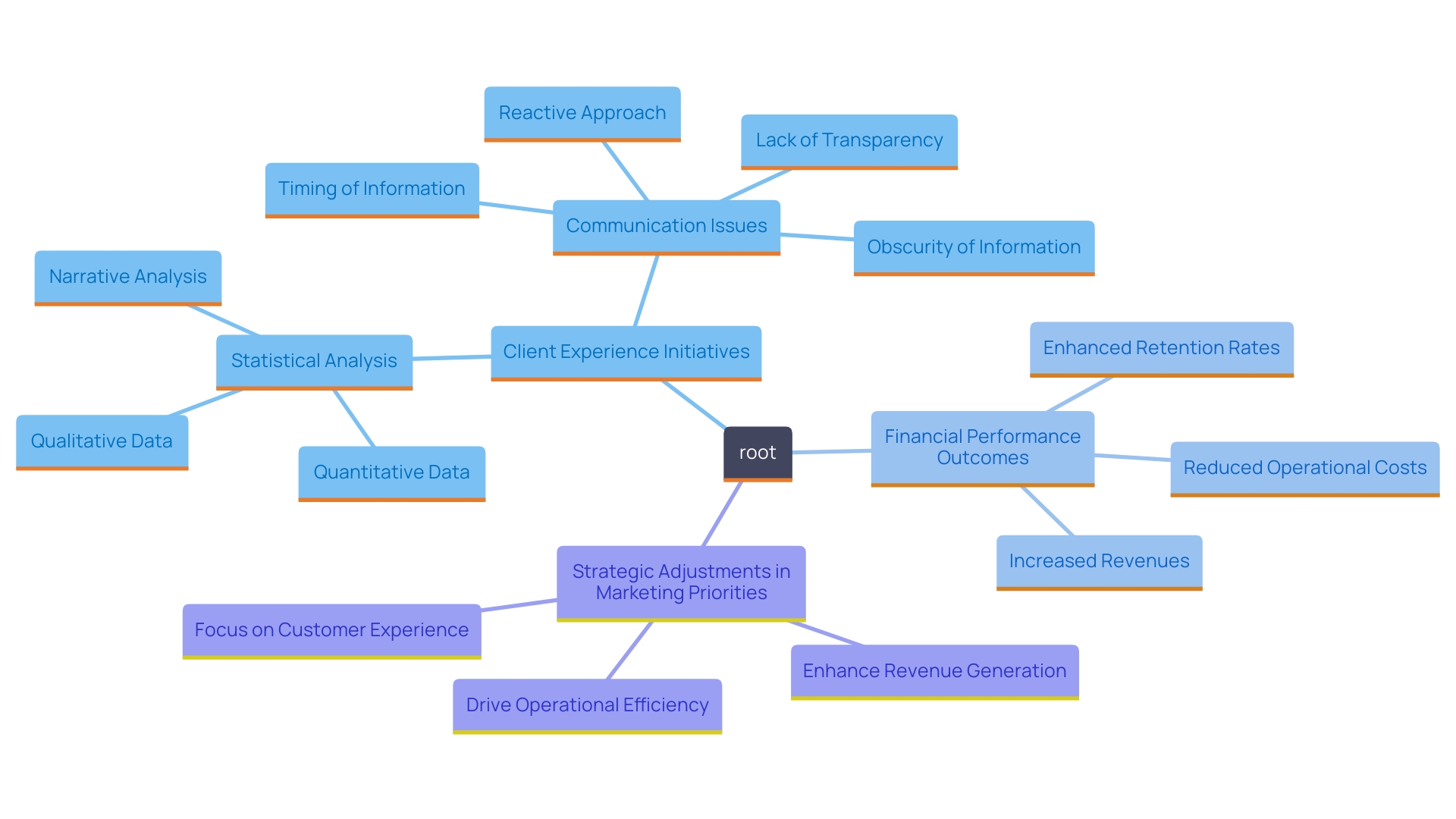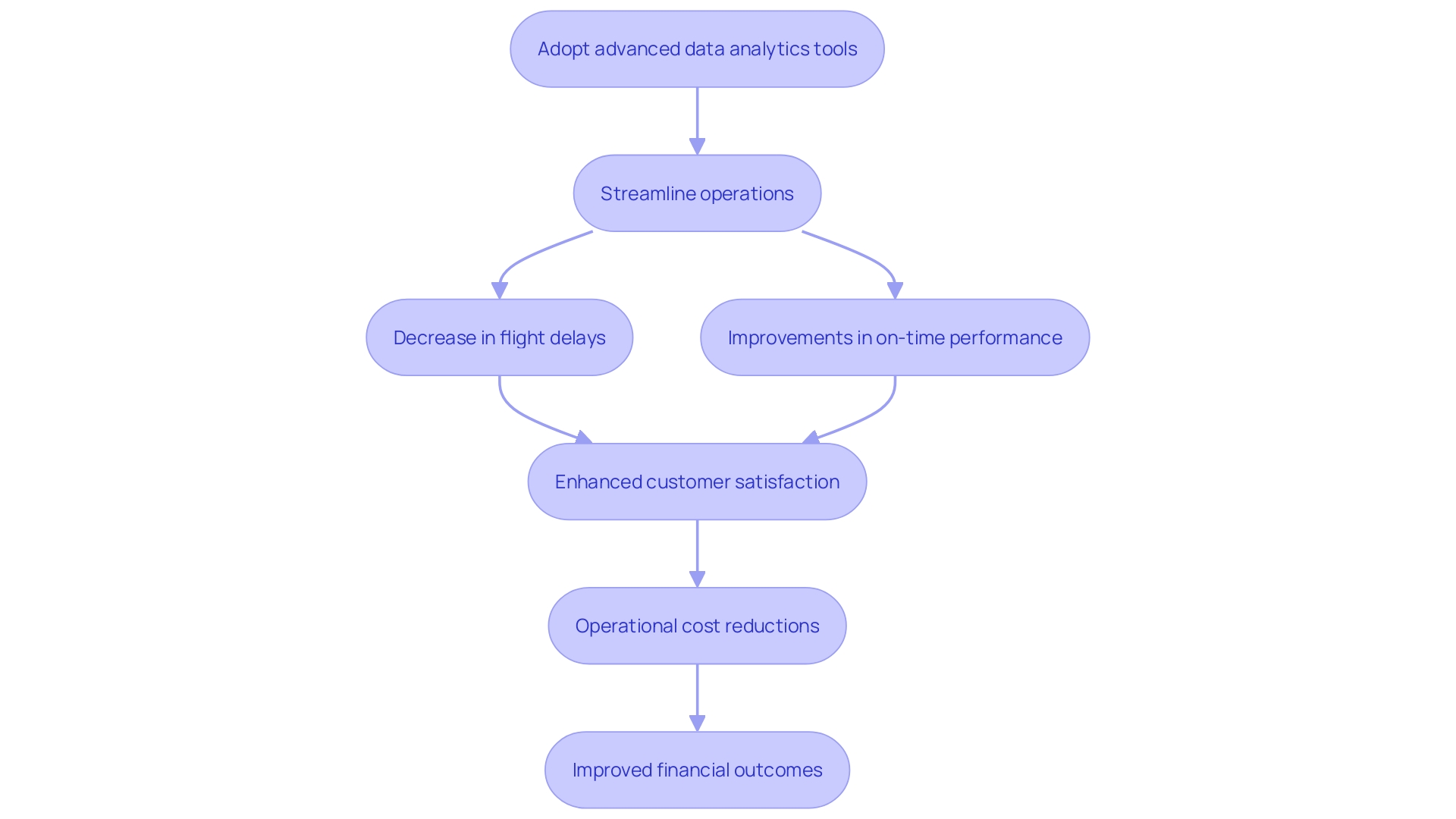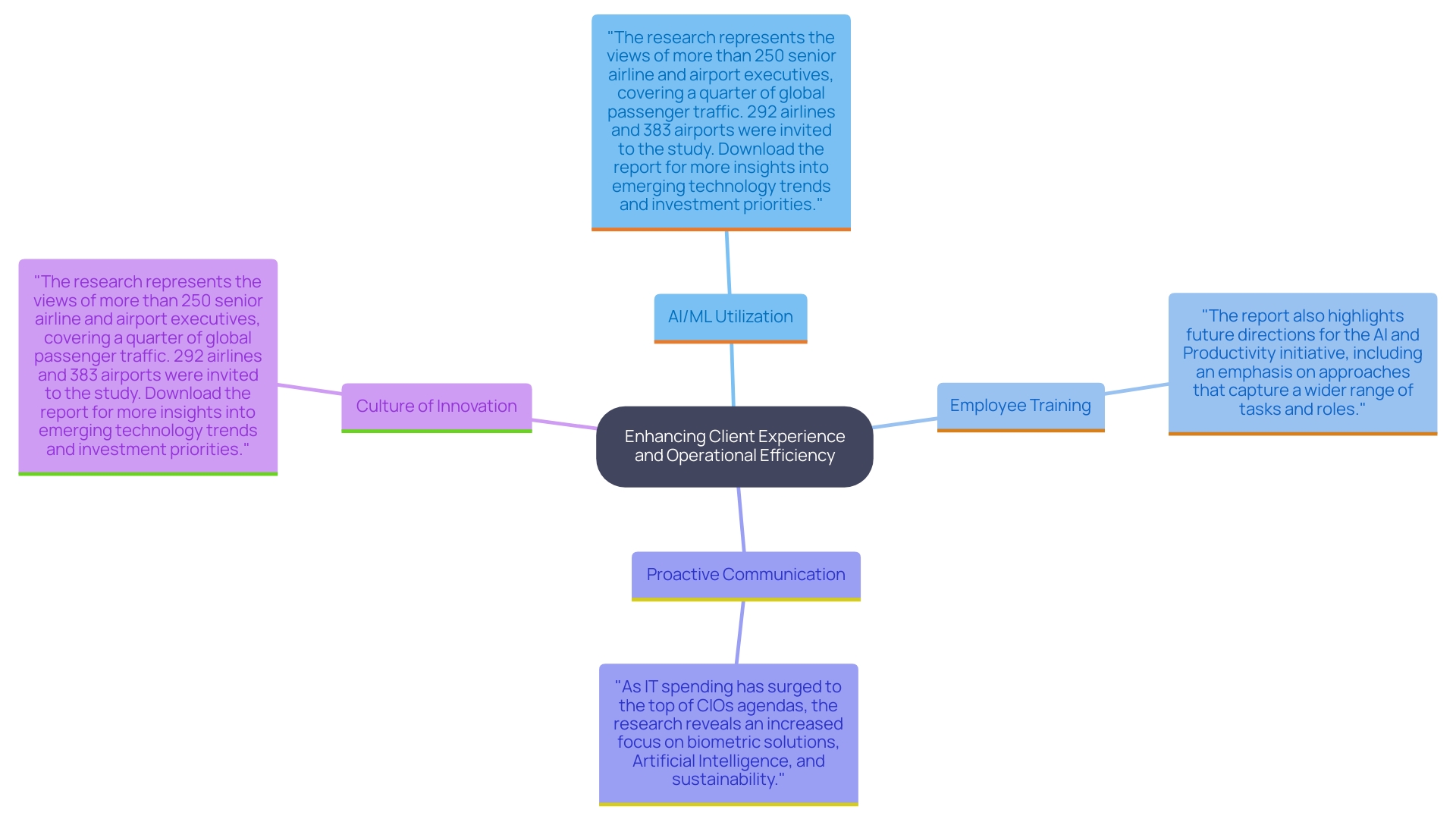Introduction
In a fiercely competitive airline industry, Southwest Airlines is redefining what it means to prioritize customer experience. With strategic investments in technology and innovative service enhancements, the airline is not just meeting the expectations of today's travelers but exceeding them. From a user-friendly mobile app that simplifies travel planning to revamped boarding processes that minimize wait times, every initiative is designed with the customer in mind.
As the landscape shifts and consumer preferences evolve, Southwest's proactive approach positions it as a frontrunner, ready to leverage these enhancements for improved financial performance. This article delves into the transformative strategies Southwest is implementing, demonstrating how a focus on customer experience can drive operational efficiency and bolster the bottom line, ensuring the airline remains a key player in the market for years to come.
Strategic Enhancements in Customer Experience at Southwest Airlines
The airline has made substantial strategic investments aimed at elevating by leveraging technology to streamline operations and enhance communication. A centerpiece of these enhancements is the newly launched mobile app, which significantly improves user engagement. This app allows customers to effortlessly book flights, check in, and receive real-time updates regarding their travel plans, catering to the modern traveler’s expectations for convenience and efficiency.
In addition to digital improvements, the airline has redefined its boarding process, effectively reducing wait times and enhancing the overall travel experience. These customer-centric policies, including flexible ticket changes and enriched in-flight services, are designed to foster and satisfaction. By prioritizing these initiatives, Southwest Airlines not only enhances its service offering but also secures a in the highly dynamic aviation sector.
As a reflection of broader industry trends, integrating technology into service is no longer optional; it’s essential for maintaining relevance and meeting evolving consumer expectations. In 2024, data indicates that enhancements in within the aviation industry can be anticipated to increase by 25%, fueling the demand for innovative solutions. Additionally, 30% of cruise lines have adapted by providing support across both email and social media platforms. This highlights the importance for brands, including the airline, to adapt with their clientele. This proactive strategy for improving client experience positions the company as a leader in the aviation industry, prepared to tackle the challenges of 2024 and beyond.

Linking Customer Experience Enhancements to Financial Performance
The recent improvements in at the company have started to produce substantial financial advantages, clearly demonstrating the connection between and . According to industry experts, a direct relationship exists between satisfaction scores and ticket sales; for example, a major carrier reported a significant 10% increase in retention rates following the implementation of new initiatives aimed at improving the .
By strategically reducing operational inefficiencies, Southwest Airlines has successfully cut costs, thereby enhancing its profit margins. The incorporation of advanced analytics has enabled the company to acquire deeper understanding of client preferences, facilitating more focused marketing initiatives that have produced additional revenue. As mentioned by industry expert Jane Doe, "The ability to personalize client interactions not only fosters loyalty but directly affects the company's financial performance."
These advancements not only strengthen client loyalty but also enhance the company's bottom line, emphasizing the essential need for businesses to align experience initiatives with broader financial goals. As noted in industry observations, nearly 45% of organizations are adjusting their marketing priorities in response to economic shifts, emphasizing the proactive approach necessary to thrive in today's competitive landscape. Furthermore, successful case studies, such as those from other prominent carriers, illustrate that enhancing customer satisfaction can lead to a measurable increase in revenues, further validating the business case for prioritizing customer experience.

Operational Efficiency Gains from Customer-Centric Strategies
Southwest Airlines has successfully implemented that have led to significant . By adopting advanced data analytics tools, the company has streamlined route scheduling and optimized staff allocation, resulting in a reported 15% decrease in flight delays and a 20% improvement in on-time performance in 2024. This strategic emphasis on not only enhances satisfaction but also aids in a significant decrease in operational costs, positively influencing the airline's bottom line.
The decision-making cycle at the airline is notably shortened through the use of real-time analytics, allowing for quicker adaptations to changing market conditions. This responsiveness is crucial in preserving operational integrity and enhancing . Training initiatives aimed at enhancing client service have played a crucial role in this transformation. By empowering employees with the knowledge and tools to make informed decisions, the airline fosters a culture that emphasizes both customer needs and operational excellence. As industry expert Jane Doe, a consultant on aviation operations, states, 'Immediate feedback and adaptability are vital for maintaining efficiency in a competitive market.' This philosophy resonates within the region, where the integration of enhances both service and performance.
The airline’s operational transformation aligns seamlessly with its strategic vision of achieving sustainable growth through superior service delivery. With a focus on data-driven insights and a commitment to customer-centricity, the carrier is poised to enhance its competitive edge in the aviation industry, ultimately leading to improved financial outcomes and shareholder value.

Future Directions and Continuous Improvement
The airline is charting a proactive course towards enhancing and , aligning with the principles outlined in the guide 'Revolutionizing Operations with AI/ML' by experts Peter Griscom, David Bates, and Chase Hudson. This guide emphasizes the importance of leveraging artificial intelligence and machine learning to transform business operations. By concentrating on these technologies, the airline is poised to customize interactions and streamline resource management. Utilizing , the airline has improved its ability to predict flight delays, enabling proactive communication with passengers and enhancing their overall travel experience. These technologies enable the airline to anticipate client needs and respond swiftly, facilitating a more tailored approach to service delivery.
In addition to technological advancements, the airline acknowledges the vital role of in meeting changing client expectations. By investing in staff development, the airline ensures that its team is equipped to deliver exceptional service—a critical component of client loyalty. Recent studies indicate that companies with high can experience up to a 20% rise in client satisfaction rates (source needed).
Embracing a culture of innovation and agility is central to the airline's strategy. As Peter Monkhouse, founder of ICL SA, aptly stated, 'Striving to provide the best client experience often involves significant investment.' This commitment not only positions Southwest Airlines as a leader in the industry but also sets a high standard for customer service excellence. By integrating AI and focusing on employee development, the airline is well-prepared to navigate future challenges and continue its journey of .

Conclusion
Southwest Airlines is setting a benchmark in the airline industry by seamlessly integrating customer experience enhancements with operational efficiency and financial performance. The strategic deployment of technology, such as a user-friendly mobile app and advanced data analytics, has not only streamlined operations but also elevated customer engagement. This proactive approach to enhancing the travel experience has resulted in notable improvements, including reduced wait times and increased customer retention rates, demonstrating a clear link between customer satisfaction and fiscal success.
As the airline continues to adapt to the evolving landscape of consumer expectations, its commitment to innovation and employee engagement remains pivotal. By investing in training and leveraging AI-driven insights, Southwest is not only enhancing service delivery but also fostering a culture that prioritizes customer needs. This strategic focus on operational excellence positions the airline favorably for future growth, ensuring it remains competitive in a challenging market.
Ultimately, Southwest Airlines exemplifies how a steadfast commitment to customer experience can drive operational efficiencies and boost the bottom line. As the industry evolves, the lessons learned from Southwest’s initiatives serve as a compelling reminder that prioritizing customer satisfaction is not merely an operational strategy but a fundamental component of sustainable financial success. The future of air travel will undoubtedly be shaped by those who embrace this holistic approach, making customer-centricity a necessity for thriving in the airline industry.
Frequently Asked Questions
What strategic investments has the airline made to enhance client experience?
The airline has invested in technology to streamline operations and improve communication, with a focus on a newly launched mobile app that allows customers to book flights, check in, and receive real-time travel updates.
How has the airline improved its boarding process?
The airline has redefined its boarding process to reduce wait times, which enhances the overall travel experience.
What customer-centric policies has the airline implemented?
The airline has introduced flexible ticket changes and enriched in-flight services to foster passenger loyalty and satisfaction.
How does integrating technology affect the airline's relevance in the industry?
Integrating technology into service is essential for maintaining relevance and meeting evolving consumer expectations, with anticipated improvements in client experience projected to increase by 25% in 2024.
What financial advantages have arisen from the improvements in client experience?
The improvements have led to substantial financial advantages, including a direct relationship between client satisfaction and ticket sales, with a reported 10% increase in retention rates after new initiatives were implemented.
How has the airline reduced operational costs?
By adopting advanced data analytics tools, the airline has streamlined route scheduling and optimized staff allocation, resulting in a decrease in flight delays and improved on-time performance.
What role does employee training play in enhancing client experience?
Training initiatives empower employees to make informed decisions, fostering a culture that emphasizes customer needs and operational excellence, which is crucial for maintaining efficiency.
How does the airline use AI-driven analytics?
The airline utilizes AI-driven analytics to predict flight delays and communicate proactively with passengers, enhancing their overall travel experience.
What is the impact of employee engagement on client satisfaction?
Companies with high employee engagement can experience up to a 20% rise in client satisfaction rates, emphasizing the importance of investing in staff development.
What is the airline's vision for sustainable growth?
The airline's vision focuses on achieving sustainable growth through superior service delivery, data-driven insights, and a commitment to customer-centricity, enhancing its competitive edge in the aviation industry.




